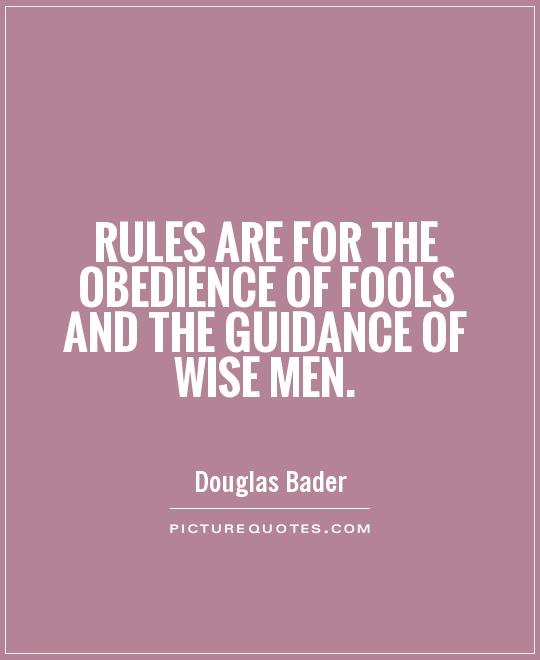Rules are for the obedience of fools and the guidance of wise men

Rules are for the obedience of fools and the guidance of wise men
Douglas Bader, a British Royal Air Force pilot during World War II, is often remembered for his bravery and resilience in the face of adversity. He lost both of his legs in a flying accident in 1931, but that did not stop him from becoming one of the top flying aces of the war. Bader's words, "Rules are for the obedience of fools and the guidance of wise men," reflect his rebellious spirit and his belief in the importance of thinking outside the box.Bader's statement challenges the conventional wisdom that rules must always be followed without question. He believed that rules should not be blindly obeyed, but rather used as a guide for making informed decisions. Bader understood that rules are necessary for maintaining order and structure, but he also recognized that there are times when it is necessary to break the rules in order to achieve a greater good.
Bader's own life is a testament to the power of breaking the rules. Despite losing his legs, he was determined to continue flying and serving his country. He fought against the restrictions placed on disabled pilots and eventually convinced the RAF to allow him to fly again. Bader's refusal to accept the limitations imposed on him by society and his willingness to challenge the rules ultimately led to his success as a pilot and a war hero.












 Friendship Quotes
Friendship Quotes Love Quotes
Love Quotes Life Quotes
Life Quotes Funny Quotes
Funny Quotes Motivational Quotes
Motivational Quotes Inspirational Quotes
Inspirational Quotes